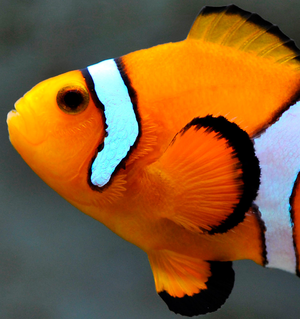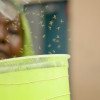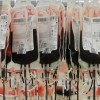 This is one for anyone out there who has, or would like to have, some tropical fish at home. Not everyone can go out to the coral reefs of Australia or the Pacific Islands, so why not have an aquarium at home?
This is one for anyone out there who has, or would like to have, some tropical fish at home. Not everyone can go out to the coral reefs of Australia or the Pacific Islands, so why not have an aquarium at home?
Now you can get your tropical reef fish guilt free, because EcoAquariums PNG, a company based in Papua New Guinea is leading the way in sustainably caught aquarium fish.
Dan - Eco Aquariums is a company that exports saltwater aquarium fish to importers around the world. Right now we have buyers in Asia, London, and North America. basically we are committed to maintaining a sustainable aquarium fishery here in PNG.
The fish that we're marketing, we're marketing them as the most sustainably collected and equitably traded fish in the world which means that we aren't taking too many and we're also paying a fair price to the people who are doing the collecting.
The ultimate goal is to make the aquarium fishery a very powerful coral reef conservation tool here in PNG.
Sarah - When we talk about sustainable in this context, what does this mean and how do you go about scientifically testing whether it is sustainable?
Dan - As far as our sustainability claims go, basically we are abiding by Total Allowable Catch limits or TACs that the PNG government establishes for us. What the PNG government is doing is their National Fisheries Authority is sending divers out onto the reef and they're conducting belt transects surveys on every single reef that we collect from. From the outer reef slope to the reef crest to the reef flats, seagrass areas, all of our collection zones.
Basically through their 100s of replicates they're establishing population estimates for all of our target species and then from those estimates they establish and catch limit. And basically we have to abide by that catch limit.
PNG is the only aquarium fish exporting country in the world that's conducting these kind of surveys to this kind of detail. We're the only aquarium fishery in the world that has the actual scientific data to back up our claims of sustainability.
Sarah - And I understand that you also involve the local people too, giving them an incentive to look after the reefs as well?
Dan - That's right. So all the collection is done by the locals in the coastal villages around the central province of PNG. Basically we are paying locals that have been trained in sustainable aquarium fish collection which means they've been trained to gently collect the fish without breaking the corals. We're paying then per fish that they collect.
So the whole idea is that we're employing average local coastal villagers to do this fish collection and we're giving them an opportunity to earn a pretty good income from fish that are otherwise totally worthless to them - the tiny colourful reef fish.
Probably our most popular fish right now is actually the 'Nemo', Amphiprion percula. Even though it's a pretty common fish in the fish trade the percula clowns from PNG are very unique in their colouration. They have odd stripes and lots of pigmentation.
In PNG these fish have absolute no value because there is no aquarium fishery up until now. So these fish were essentially nice to look at but had no value to the local people. The concentrated mostly on the larger fish, the food fish.
So by going into these villages and offering money for these fish that had no value, suddenly their coral reef resource takes on a whole new meaning of economic opportunity and it really reinforces their position to protect their corals and protect their reef from local pollution and destructive fishing.
Sarah - Is sustainability within the aquarium trade as a whole quite an unusual, new concept?
Dan - I think it's becoming more of a widespread concept but I don't think it's actually being implemented. It certainly isn't being backed up by any kind of science outside PNG. There's a lot of talk about sustainability now especially in the USA. Lots of people are promoting captive-bred fish, some are trying to steer people away from wild caught fish.
One of the biggest thing that Eco Aquariums says is that it's probably better to support a sustainable wild collecting fishery that to support captive-bred fisheries mainly because if you're supporting captive-bred fish then you're cutting out the Pacific islanders from the market chain, which then takes away their economic incentive to protect their coral reefs.
Sarah - So do you hope the way Eco Aquarium runs things will be spread out elsewhere in the world, in the tropical reef regions?
Dan - Absolutely. Eco Aquariums is trying to set a standard for the wild collection-based aquarium fishery. We're implementing a labelling and tagging system so all the fish that come out of PNG have a label attached to their fish bags which label the fish clearly as coming from PNG, from Eco Aquariums. So we're really marketing these fish as the sustainable alternative, so it's very obvious, very easy for people to see so they can make that decision to support a more sustainable option.
And we're hoping that there's a huge demand for this and that it's going to force other companies to change their ways.
Sarah - And of course they're going to be available in Europe by Christmas. Are they already available in other parts of the world?
Dan - They're going to be available in Singapore on Thursday. And they're going to be available in North America very soon. So we are actually pretty much in the start up phase right now. We'll be making our first exports to Asia this week, London before Christmas, and hopefully the same with New York city. So these will be widely available in the coming months.
Find out more about clown anemone fish - Amphiprion percula (aka Nemo) - at
Critter of the Month










Comments
Add a comment